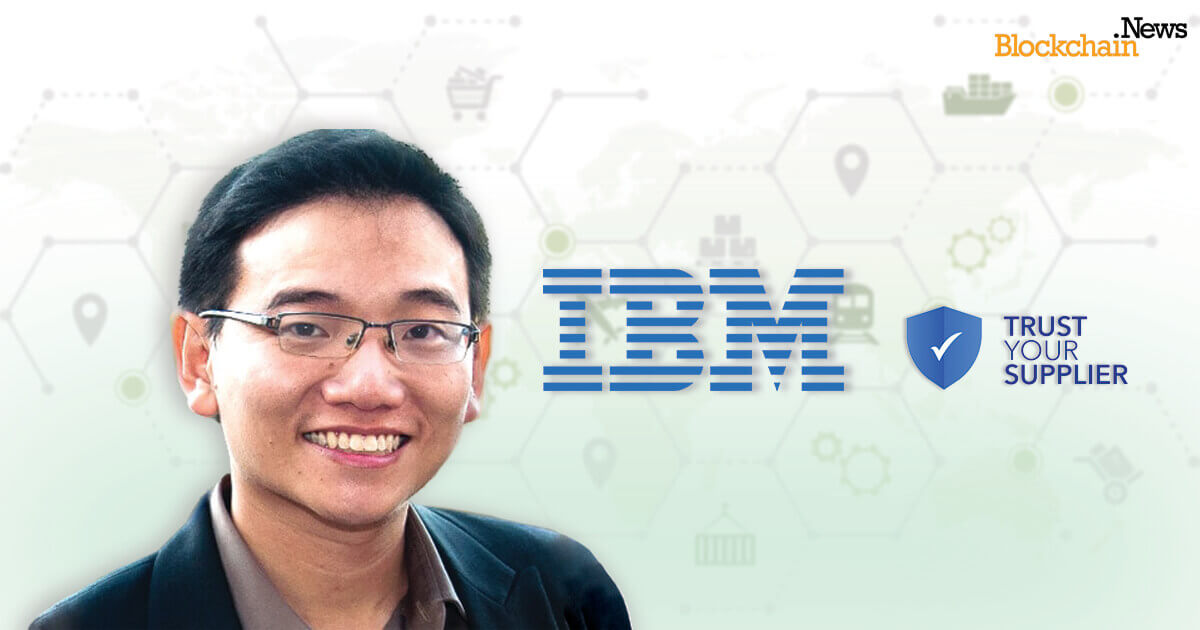How Can IBM’s Blockchain Network Support $2 Trillion in Product Logistics by 2023?
Sarah Tran Dec 23, 2019 10:00
IBM Blockchain has been around for several years, delivering on blockchain projects for enterprises in areas such as trade finance, securities, payments and supply chain traceability, as well as establishing new platforms for businesses and improving efficiencies in existing industries. Alan Lim, one of the initial members of the IBM Worldwide Blockchain team, heads IBM Blockchain Labs in the Asia Pacific. Lim kicked off his journey in blockchain as he was curious about how blockchain was being used in solving some real-world challenges.

IBM Blockchain has been around for several years, delivering on blockchain projects for enterprises in areas such as trade finance, securities, payments and supply chain traceability, as well as establishing new platforms for businesses and improving efficiencies in existing industries.
Alan Lim, one of the initial members of the IBM Worldwide Blockchain team, heads IBM Blockchain Labs in the Asia Pacific. Lim kicked off his journey in blockchain as he was curious about how blockchain was being used in solving some real-world challenges. “I realized that blockchain was a new approach to solve the issues around trust, to look at how we can reimagine or change the way transactions are processed, and how we can establish a single point of view across different parties,” said Lim.
Lim believes that blockchain is an interesting new approach for cross-border transactions that involve multiple parties. “When I look at it from an architectural perspective, it became even more interesting as I dug deeper into it. I started to see that it’s not just about the technologies, there’s the economics behind it as well.”
Lim’s work at IBM has been based on working on blockchain from an enterprise perspective. “What we have seen for the last couple of years, is the maturing understanding of blockchain and its uses for enterprises,” stated Lim. He commented that his journey has geared towards trying to understand the requirements and capabilities of the technology in order to be fully realized from an enterprise perspective. “I’m still very excited about the potential, the technologies and what it can do across a range of different industries beyond the financial services sector. Hopefully, we will see more adoption, as some of these use cases and networks are moving towards the production kind of deployment.”
IBM TYS: The ‘Digital Passport’ to Streamline Supply Chain Processes
IBM and blockchain consultancy firm, Chainyard announced a new collaboration on Aug. 5 regarding a new blockchain network called Trust Your Supplier (TYS), which was designed to improve supplier qualification, validation, onboarding, and life cycle information management. Other founding members of the network include Anheuser-Busch InBev, Cisco, GlaxoSmithKline, Lenovo, Nokia, Schneider Electric and Vodafone.
The TYS network aims to solve issues around manual processes that make it difficult to verify identities and track documents such as bank account information, tax certifications and certificates of insurance throughout the lifecycle of a supplier. Technology research firm Garner Inc. mentioned that by 2023, blockchain will support the global movement and tracking of $2 trillion of goods and services annually.
“We identified a problem, that the current procurement process is a very long time to onboard a new supplier to a company. The company needs to go through the due diligence process to make sure that the given suppliers are compliant as necessary credentials to be able to support the buyer’s needs,” said Lim.
Lim explained that this is a reoccurring process, across different organizations, therefore he pointed out that the process should be simplified. “To streamline the whole process, we would enable a ‘digital passport’, then different organizations and suppliers would secure their necessary credentials and would make it easier for the supplier to enter into a new relationship with the purchase and vice versa.” IBM is currently working with different parts of the ecosystem to empower a more efficient onboarding process.
.jpg)